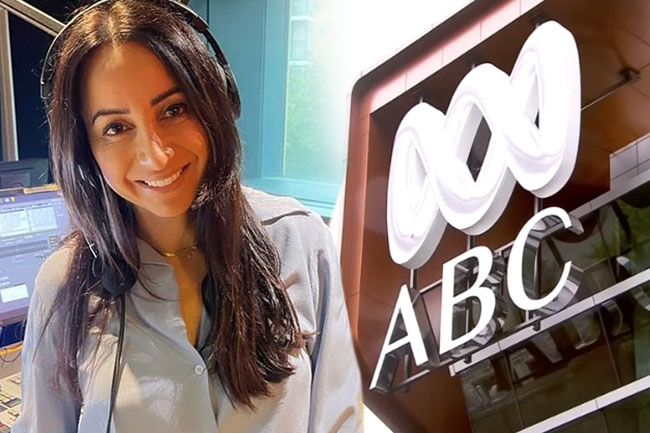Disagreement on #MeToo has now been cast as age-related, but ageism is a toxic patriarchal tool, catastrophically used against women and can only serve to impede the debate, writes Jennifer Wilson.
IT BEGAN with this tweet posted by journalist and broadcaster Julia Baird:
'YOUNG FEMINISTS: What do you think older feminists don’t understand or get exactly right, or just miss about #MeToo, if anything? Am curious to hear.'
It continued with this piece by Guardian journalist Van Badham, in which she warms to the concept of an arbitrarily constructed ageist divide as a tool for exploring differences amongst feminists:
'Baird’s question, however, is a useful means to explore not only some contrast in inter-generational feminisms but the vast experiential differences between the generations themselves.'
Here, we might do well to reflect that categorisation – so beloved by the patriarchy – confers a sense of power on those engaged in the process of labelling and because of this, is perhaps not the best choice of exploratory tool for feminists?
It was then picked up by writer Margaret Atwood, who tweeted:
'That’s patriarchy: how female sexual liberation led to male sexual entitlement …The dividing moment was 1966 when The Pill became widely available, as I recall.'
As I noted in reply to Atwood at the time, male sexual entitlement was well in place long before 'female sexual liberation' and I am utterly bewildered by any suggestion from feminists that it was otherwise. There appears to be an unexamined and utterly erroneous conflation of the contraceptive pill and being allowed to talk about our sexuality and desires, with the onset of male entitlement. More on this later.
'It’s alarming, then, to witness media feminists adopt age ... as a means by which to “understand” differences between feminists.'
Disagreement on #MeToo has now, unfortunately, been cast as age-related — despite the fact that the French women who initiated the debate with their letter criticising the movement are separated by decades. Signatory and writer Abnousse Shalman, for example, is in her 40s, as is psychoanalyst Sarah Chiche, while actor Catherine Deneuve is 74, so quite how one is determined to be “older” is puzzling. Anyone over 26? Regardless, all 100 signatories have been lumped by Baird and Badham in the category “older feminists” – with Greer thrown in for good measure – and their motivations for disagreement with #MeToo are cavalierly attributed to the very disparate times in which they experience heterosexual sex.
Let us pause for a moment to consider how a woman’s age and ageing is used against her – particularly in the industry that supports both Baird and Badham – and how inextricably tied to our appearance is this discrimination. One small example: “I’ve spent 700 hours in the hairdresser’s hiding my grey hair,” says ABC news presenter Juanita Phillips. This is because women in media need to look sexually desirable – it’s part of the job description – and the older a woman is, the less sexually desirable she is judged to be. It’s alarming, then, to witness media feminists adopt age – a concept that is persistently and ruinously used against women in western culture – as a means by which to “understand” differences between feminists.
It is not actually possible, in our current public discourse, to separate the terms “older women” or "older feminists” from the exclusionary biases associated with those phrases and to pretend otherwise is disingenuous.
Ageist divides have never worked well for women. They stereotype and, thus, dehumanise. They are exclusionary, patronising and, most of all, intellectually lazy — if it’s too challenging to dig deeper, just settle for an age divide you arbitrarily determine. And so you get this patronising commentary from Badham on how older feminists don’t understand younger feminists who embrace #MeToo:
For feminists who survived those generations, it must seem extraordinary to have battled at such risk for liberation to hear younger women discuss sexual contracts, a desire for boundaries, a wish not to be sexualised by men in their lives. Given the emergence of their generation from socially-enforced cocoons of sexual repression, where actual laws existed to culturally erase women’s sexuality, it must look like regress to older women.
I can’t claim to have survived all the generations to which the above quote refers, but I’ve certainly survived enough of them to challenge the assumption that the desire for boundaries, sexual contracts and a wish not to be sexualised by the men in our lives seems extraordinary to older women. This desire, attributed by Van Badham to “younger feminists”, has been the leitmotif of our entire lives. I find nothing regressive about any of it, we’ve simply been wishing for it longer than our younger sisters.
Sexual liberation did not give older feminists any more control over heterosexual sex than we’d thus far had. It did not give us the power to safely refuse sex. It did not guarantee us sexual pleasure and satisfaction. It did not change entrenched male entitlement to our bodies — indeed, it gave us less of an excuse to refuse. It did give us the means to protect ourselves from unwanted pregnancy, but it did nothing to stop us being raped, harassed and otherwise abused. So to conclude that older feminists are surprised by younger women wanting the right to be regarded as fully human is astoundingly naïve — and not a little insulting.
This disheartening piece by Lily Loofbourow, titled 'The female price of male pleasure', could have been written 40 years ago and any time since and, for mine, serves to emphasise that sexual liberation did not enable our emergence from “socially-enforced cocoons of sexual repression” in any but the most superficial manner.
What we got was the appearance of liberation. We can talk about female pleasure and our orgasms. They’ve allowed us to do that. However, there is an argument to be made that “liberation” has actually enabled the ongoing concealment of our all-too-common reality – as described by Loofbourow – and that true liberation is still out of reach. We will not be liberated until women can refuse men without fear of repercussions of any kind. Until that day, we can talk as publicly as we like about our orgasms and our desires, but we still remained enslaved.
It’s been my observation that age plays no primary part in women’s attitudes to sexual mores. Yes, you will encounter older women who hold opinions that you might lazily attribute to age, however, you are just as likely to meet older women whose opinions are shared by much younger women, and vice versa. Had Baird and Badham taken the trouble to speak with older feminists – and I know at least two of us who offered our points of view and were ignored – they might have addressed the topic with more authenticity than they managed.
' ... Until women can refuse men without fear of repercussions of any kind ... We can talk ... about our orgasms and our desires, but we still remained enslaved.'
The process of recognising, acknowledging and naming male entitlement to our sexuality is complex and confronting. Some of us get our heads around it earlier than others. This is nothing to do with age, but with our opportunities, experiences – many of which are determined by our class and over-arching societal structures over which the individual has little if any control – and a desire for consciousness and awareness.
For example, feminist writers Andrea Dworkin, Susan Brownmiller, Shulamith Firestone and Betty Friedan – to name just a few – were/are roughly contemporaries of Catherine Deneuve and it would be difficult to find women more at odds with the actor on the question of female sexuality, male entitlement and heterosexual sex. Obviously, age cannot explain this and this in itself demonstrates that attempts to explain the difference by employing age as a cause, need to be vigorously challenged.
The question is, why this debate is framed in terms of age? How can it be “useful” to employ age as a tool to explore differences between feminists on the question of male entitlement to female sexuality? Why are media feminists such as Baird and Badham advocating the categorisation of women — an act that, like all categorisation, denies the nuance and humanity feminism has fought so hard and for so long to establish in public discourse? What is their purpose in constructing a narrative founded in ageism and can such a narrative ever be regarded as “feminist?”
These are questions a feminist with a platform in the mainstream media ought to be asking herself. With a platform comes power — power to set the narrative and the power to ignore or silence anyone who disagrees with or questions that narrative. A feminist with such a platform could well ask herself: Why am I advocating the co-option of ageism, a toxic patriarchal tool of control and division employed primarily and most catastrophically against women, as a method of analysis?
Fortunately, independent media exists to point such things out.
You can follow Dr Jennifer Wilson on her blog No Place for Sheep or on Twitter @NoPlaceForSheep.

This work is licensed under a Creative Commons Attribution-NonCommercial-NoDerivs 3.0 Australia License
Monthly Donation
Single Donation
Make your voice heard. Subscribe to IA.











